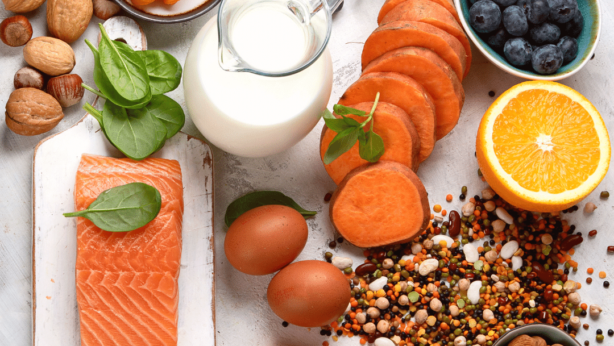What are the Best Foods for Eye Health?
One of the best ways to keep our eyes healthy is also one of the simplest: follow an eye-healthy diet. Omega 3 fatty acids, zinc, and vitamins A, C, and E are particularly linked to eye health, and eating plenty of foods rich in these nutrients can help to protect against some eye diseases.
National Eye Health week begins on September 21st, a good time for us all to think about nutrition for eye health, and examine our diets – are we getting enough of the nutrient-rich foods that can help to protect our eyes and overall health for years to come?
As well as foods that are specifically good for the eyes, maintaining a healthy weight and following a healthy diet is one of the most important ways to prevent other diseases. Heart disease, stroke, high blood pressure, and type 2 diabetes are all closely linked to poor diet and being overweight. Eye problems can also develop as a secondary result of these diseases, so following a good diet for all-round health is important for the whole body – and mind – as well as the eyes and vision.
Some nutrients to look out for when you’re choosing foods for eye health
- Vitamin A: For all-round eye health. Vitamin A is found in dairy products and fortified dairy alternatives, eggs and oily fish. Vitamin A is also made in the body when you eat plenty of foods containing beta-carotene, which is found in carrots, peppers, mangos, and other highly-coloured fruit and vegetables.
- Vitamin C: an antioxidant vitamin, meaning that it helps to reduce the levels of certain harmful substances in the body. Vitamin C helps protect against age-related macular degeneration and cataracts. Citrus fruits, peppers, and strawberries are particularly good sources of vitamin C.
- Vitamin E: Vitamin E is plentiful in plant oils, nuts and seeds, and helps to keep the cells of the eye healthy.
- Zinc: Found in beans and wheat as well as dairy foods, oysters and lean meats, zinc is a key mineral for maintaining healthy eyes.
- Omega 3: an essential fatty acid for eye health. The best sources of omega 3 are oily fish, but it can also be found in walnuts, flaxseed, and eggs.
- Lutein and Zeaxanthin: essential for preventing macular degeneration, lutein and zeaxanthin are less well-known nutrients, but you can get plenty by eating lots of dark green leafy vegetables like spinach and kale.
Some people choose to take vitamin supplements, and they may be particularly recommended for people with certain conditions. Most people can get all the nutrients they need just be following a varied, healthy diet. If you’re unsure, consult your doctor about your diet and nutritional needs.



